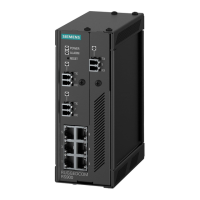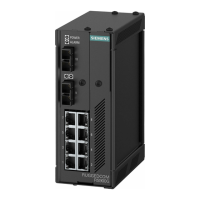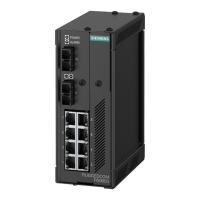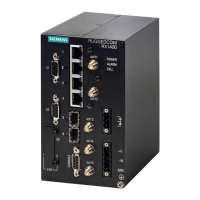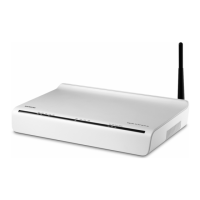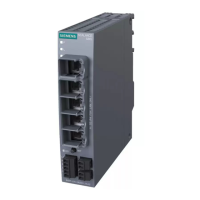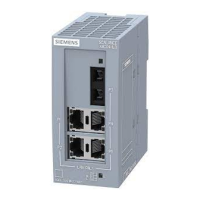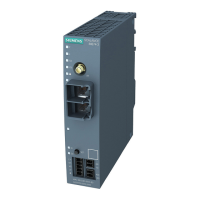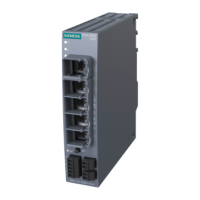Chapter 7
Examples
RUGGEDCOM NETCONF
Reference Guide
102 Enabling the OSPF Passive-Default Option
<running/>
</target>
</unlock>
</rpc>]]>]]>
Section7.26
Enabling the OSPF Passive-Default Option
In this example, multiple <rpc> requests configure the OSPF passive-default option in the candidate configuration
and then commit the changes.
The following is the recommended procedure for making configuration changes on a device.
1. Lock the running configuration:
<rpc xmlns="urn:ietf:params:xml:ns:netconf:base:1.0" message-id="230">
<lock>
<target>
<running/>
</target>
</lock>
</rpc>]]>]]>
2. Lock the candidate configuration:
<rpc xmlns="urn:ietf:params:xml:ns:netconf:base:1.0" message-id="231">
<lock>
<target>
<candidate/>
</target>
</lock>
</rpc>]]>]]>
3. Discard uncommitted changes:
<rpc xmlns="urn:ietf:params:xml:ns:netconf:base:1.0" message-id="232">
<discard-changes/>
</rpc>]]>]]>
4. Enable the OSPF<passive-default> option:
<rpc message-id="233" xmlns="urn:ietf:params:xml:ns:netconf:base:1.0">
<edit-config>
<target>
<candidate/>
</target>
<config>
<routing xmlns="http://ruggedcom.com/ns/rmf_routing">
<dynamic>
<ospf>
<passive-default/>
</ospf>
</dynamic>
</routing>
</config>
</edit-config>
</rpc>]]>]]>
5. Commit the changes:
<rpc message-id="234" xmlns="urn:ietf:params:xml:ns:netconf:base:1.0">
<commit/>
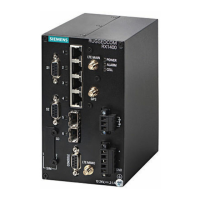
